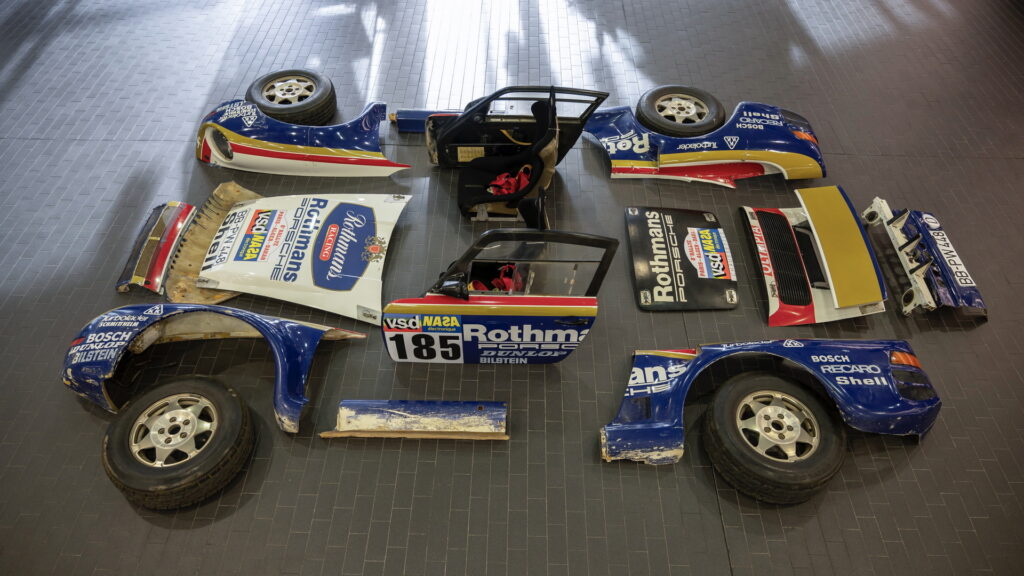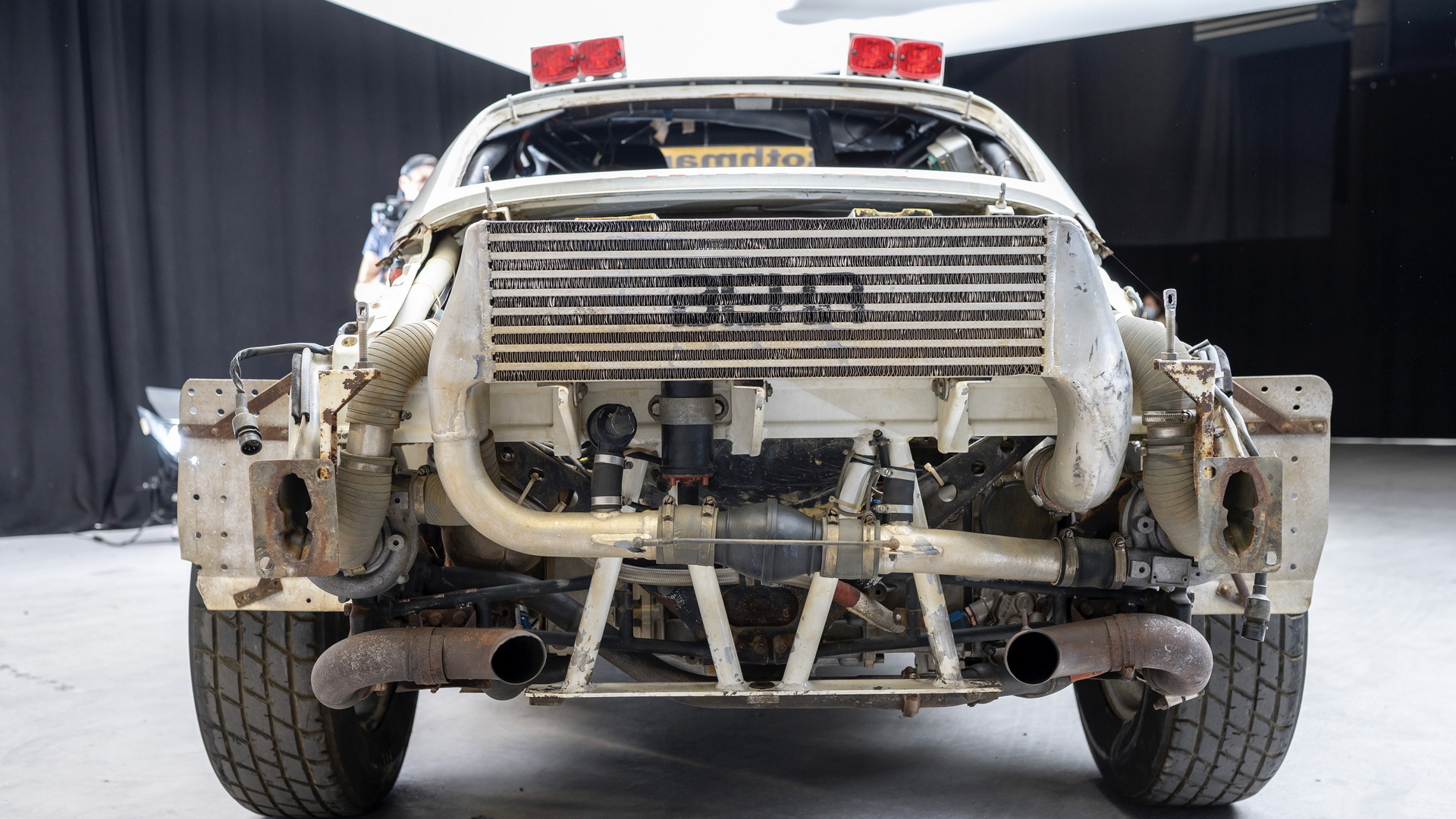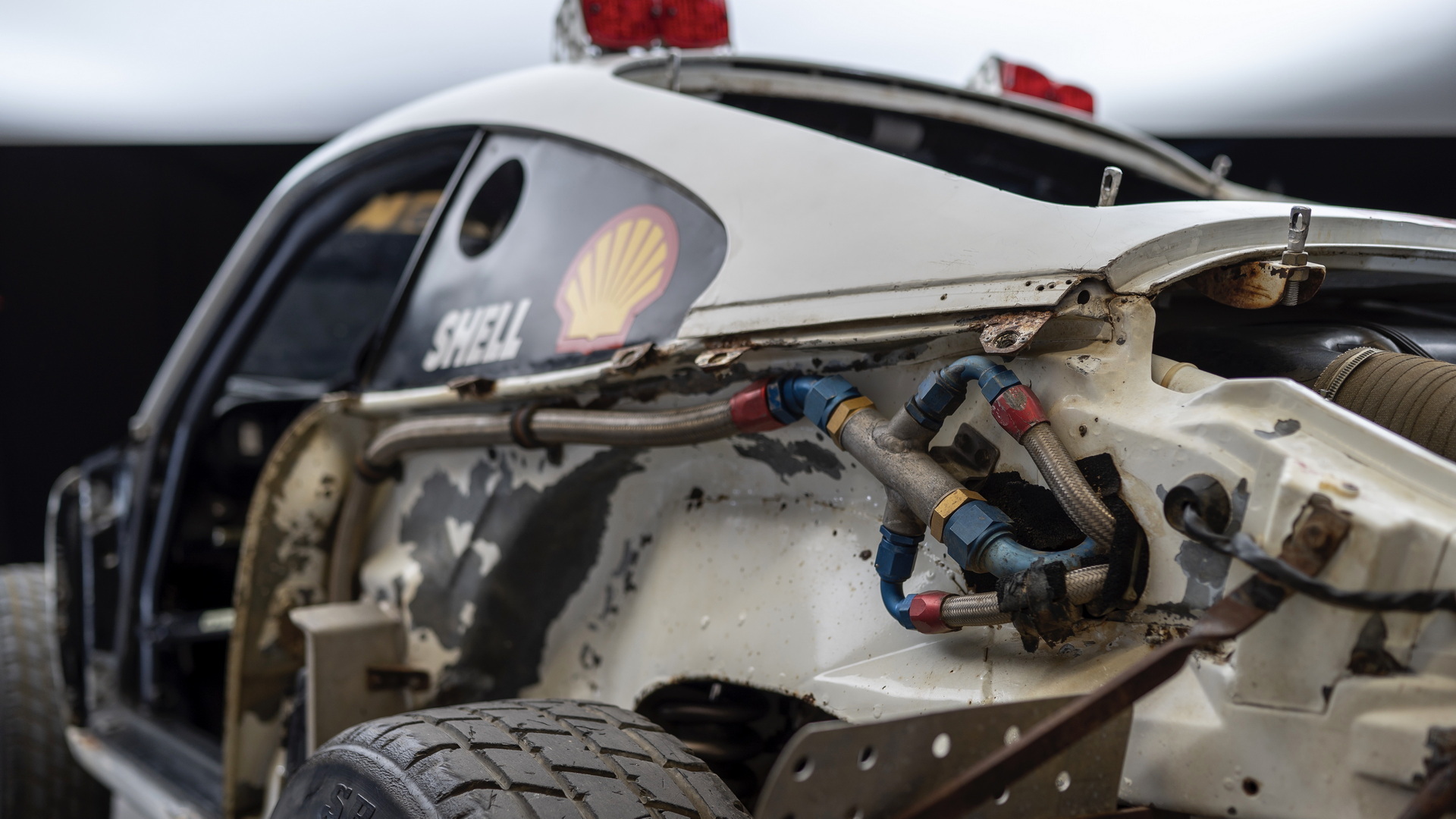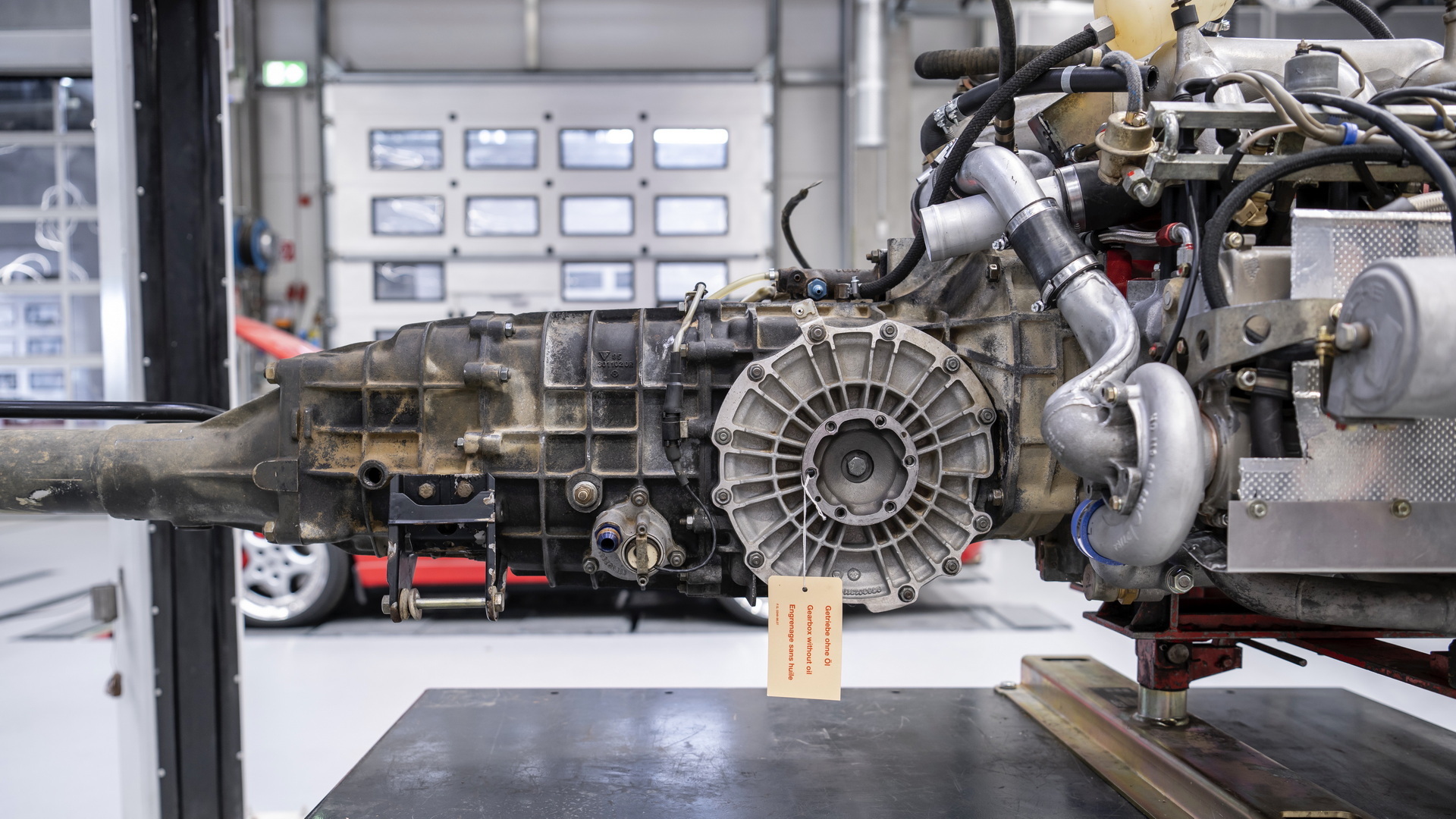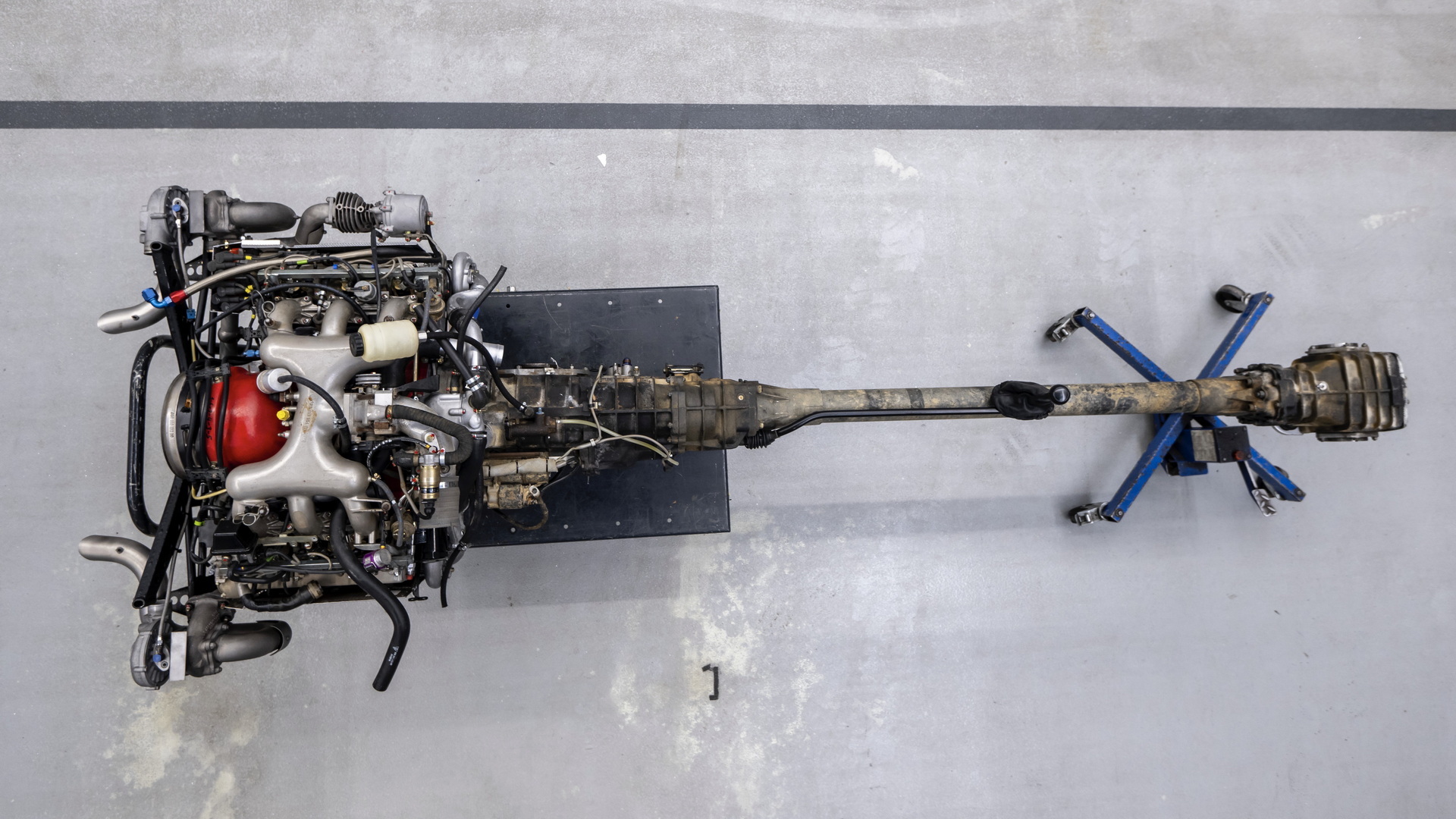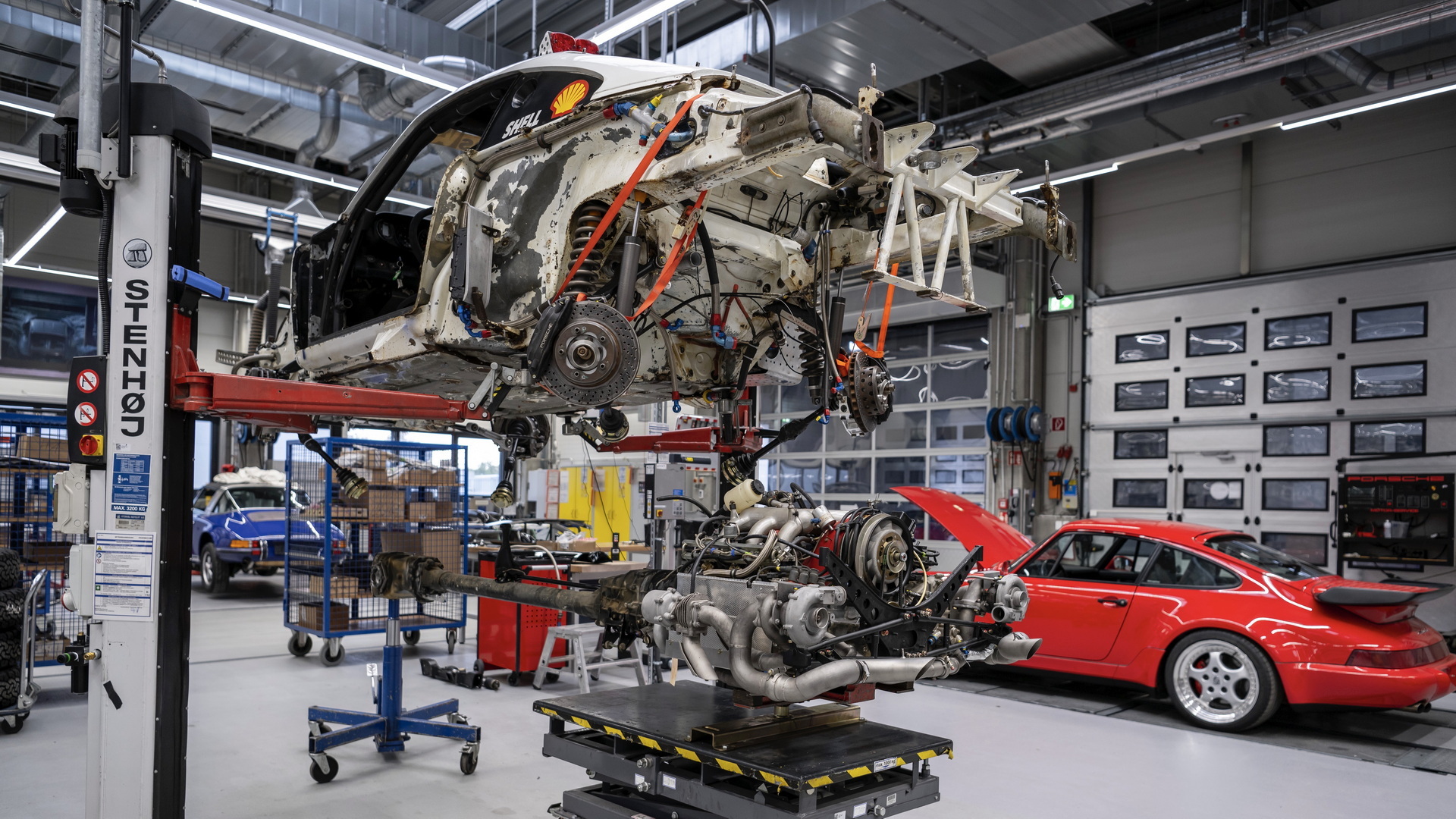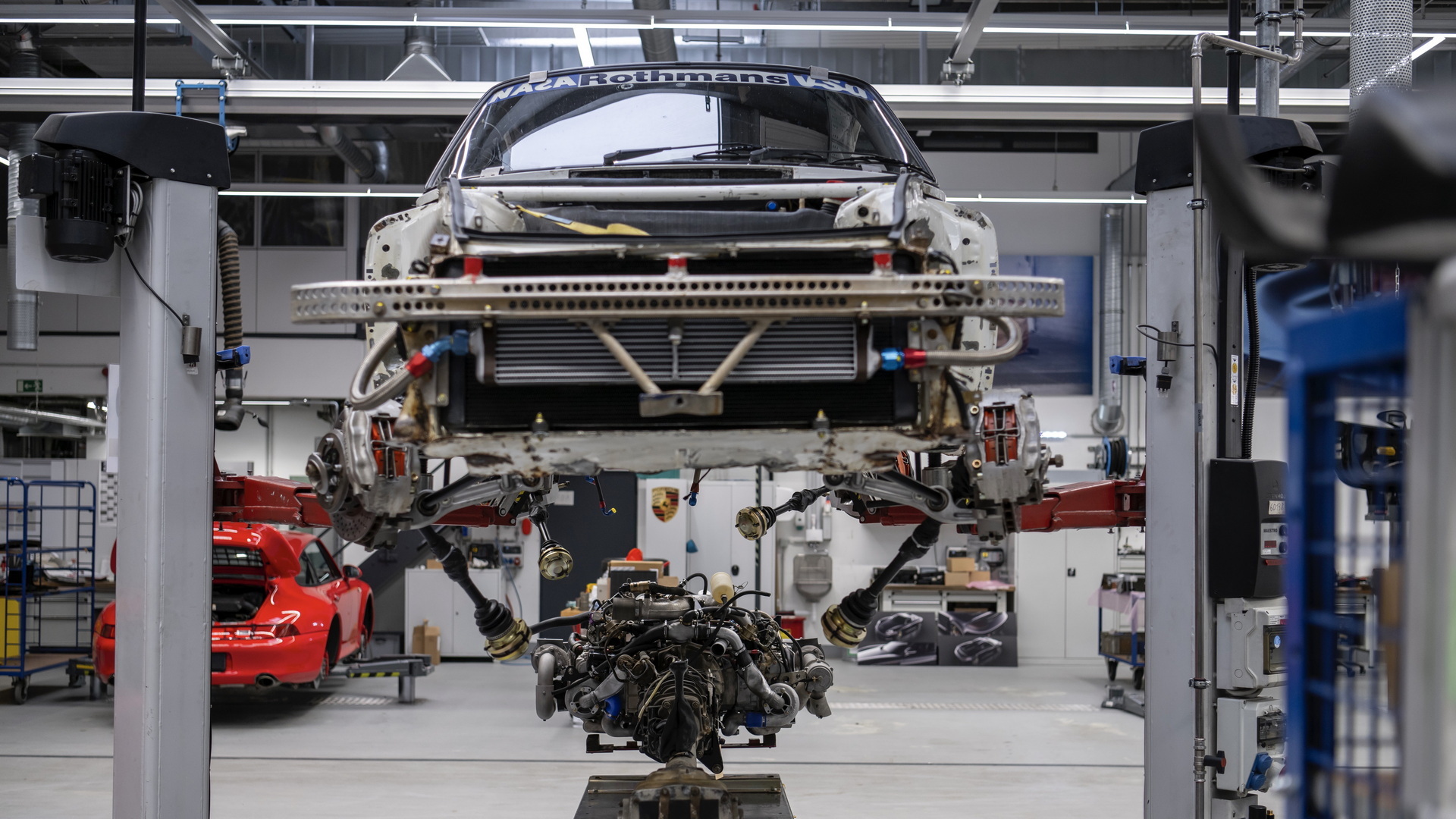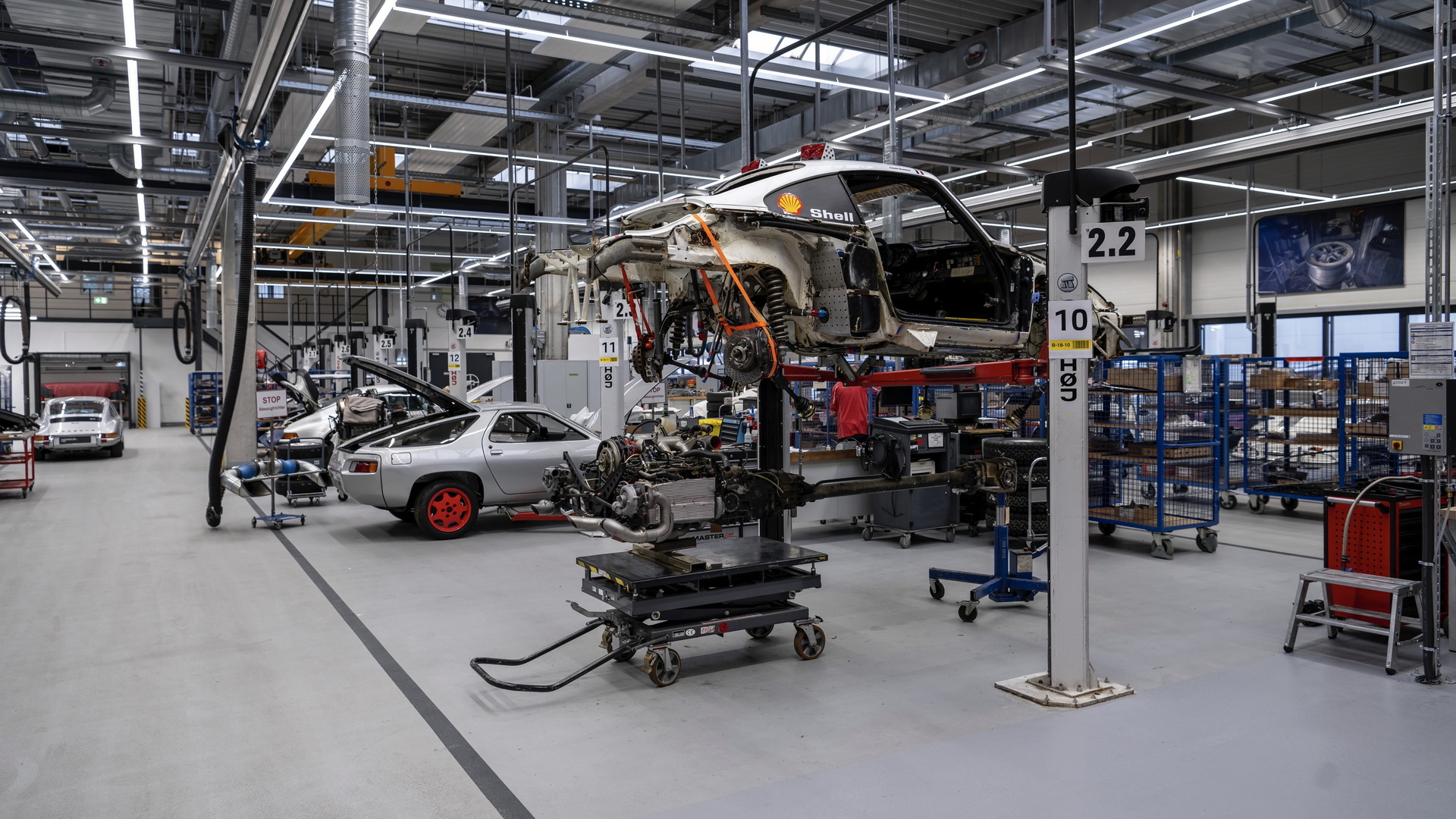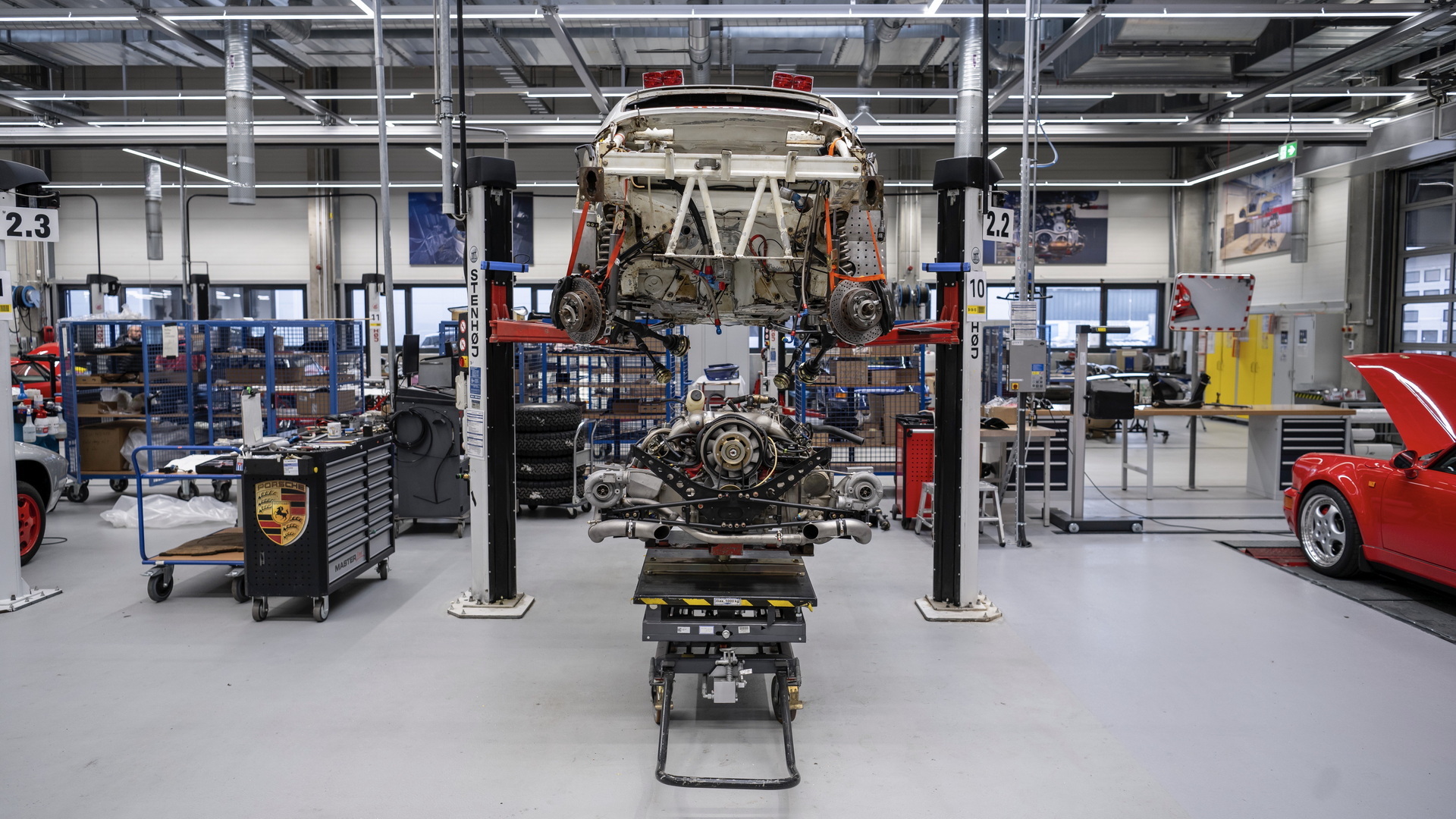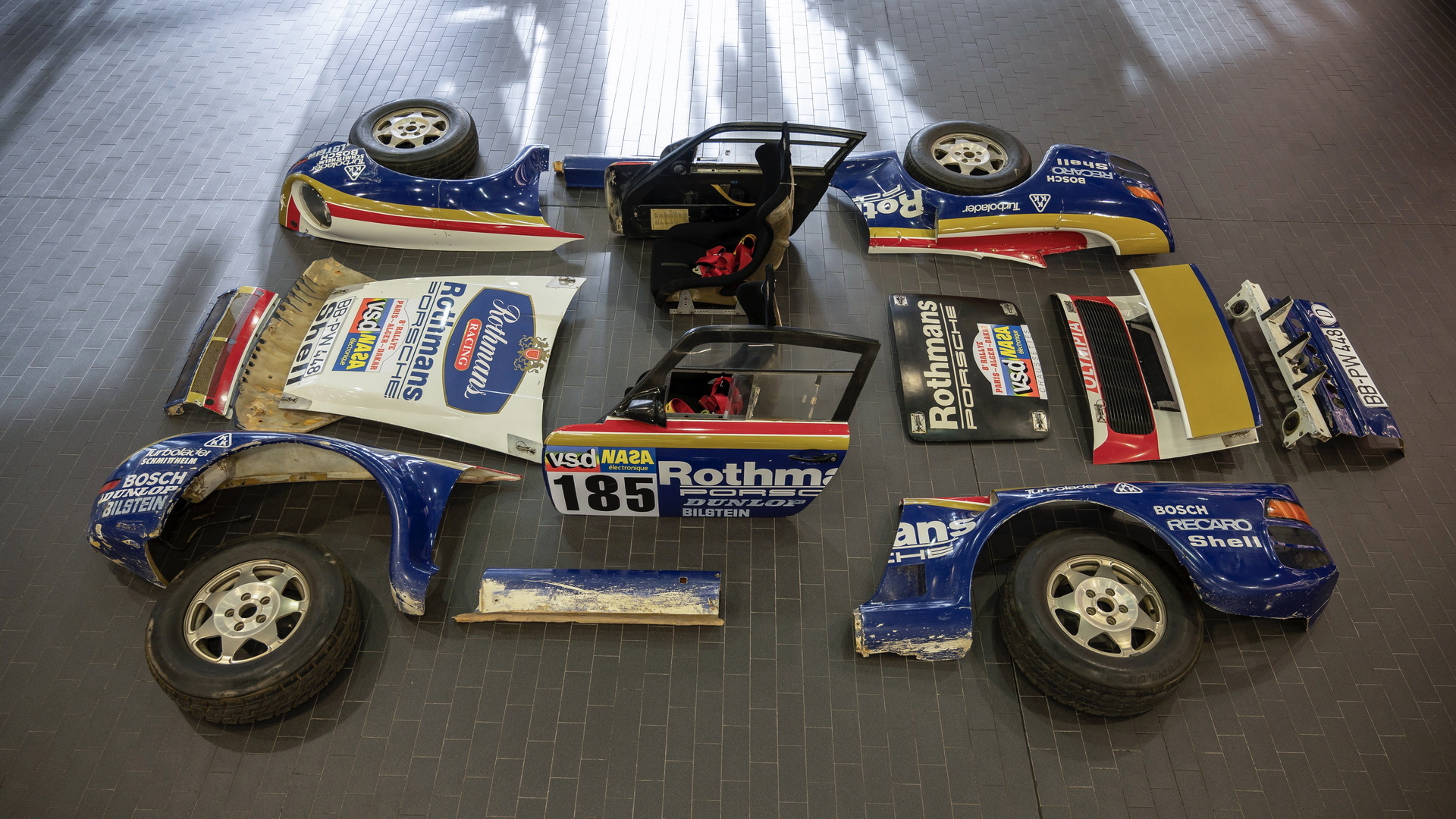Now that it has revealed the 2023 911 Dakar, Porsche can turn its attentions to the car that inspired it, the 959 that won the 1986 Paris-Dakar rally. Although the first place car will never be restored—and is instead being left in original condition for as long as possible—the second-place car that was driven by Jackie Ickx has been given a gentle restoration.
Porsche recently revealed the restored car to its driver and the world in a quarry near its factory, and will be telling the story of how it took it apart and built it back up over several episodes in a YouTube documentary series.
As with the race winner, Porsche’s restoration team, led by Kuno Werner, the head of its Museum workshop, wanted to leave as much of the car’s history alive as possible. That meant leaving some damage, such as where the Kevlar doors or hood made contact with the metal body as a result of the enormous pressures inflicted upon the 959 Paris-Dakar by the rough terrain.
“We want to keep the original condition and only lightly overhaul the car while eliminating any technical flaws,” said Werner. “As this was not an everyday thing for us, it was fascinating. Muddy dirt showed us today that the 959 Paris-Dakar went through rivers and had experienced water in its interior.”
The team says it even left the zip ties that were affixed (temporarily) by the original engineers and mechanics in place while it was giving the car its overhaul, in order to better protect its history, and more completely convey the history of the vehicle.
“Only by keeping the damage from back then can we tell the story authentically and preserve it,” explained Werner.
Naturally, that story is a pretty good one. The development process for the 959 Paris-Dakar took two years, during which Porsche reinforced the suspension, added all-terrain tires, and used Kevlar body panels to reduce weight.
Despite the reinforcements, Porsche managed to lower the weight of the race car to 1,260 kg (2,778 lbs) from 1,450 kg (3,197 lbs). That was important, because the low-quality fuel throughout the race meant that the compound turbocharged flat-six was detuned to make just 394 hp (294 kW/400 PS), down 50 hp (37 kW/51 PS) from the roadgoing car.
As it turns out, though, the team made the right sacrifices because during in its first attempt of the 14,000 km (8,699 mile) race, the 959 Paris-Dakar finished first and second. The third car, entered as a support vehicle and driven by project manager Roland Kussmaul and Wolf-Hendrick Unger, finished sixth.
Impressively, despite having completed the 14,000 km (8,699 mile) race, and all of the test-driving required of a race car, the Porsche 959 Paris-Dakar that was restored has driven just 18,000 km (11,185 miles) in its time, making it enormously original.
Now set to make its public debut at in Stuttgart at the Retro Classics event, the car will be displayed as part of the “75 Years of Porsche Sports Cars” display there. In addition, Porsche plans to release six videos detailing the restoration of the car, with the final episode dropping on February 11.




